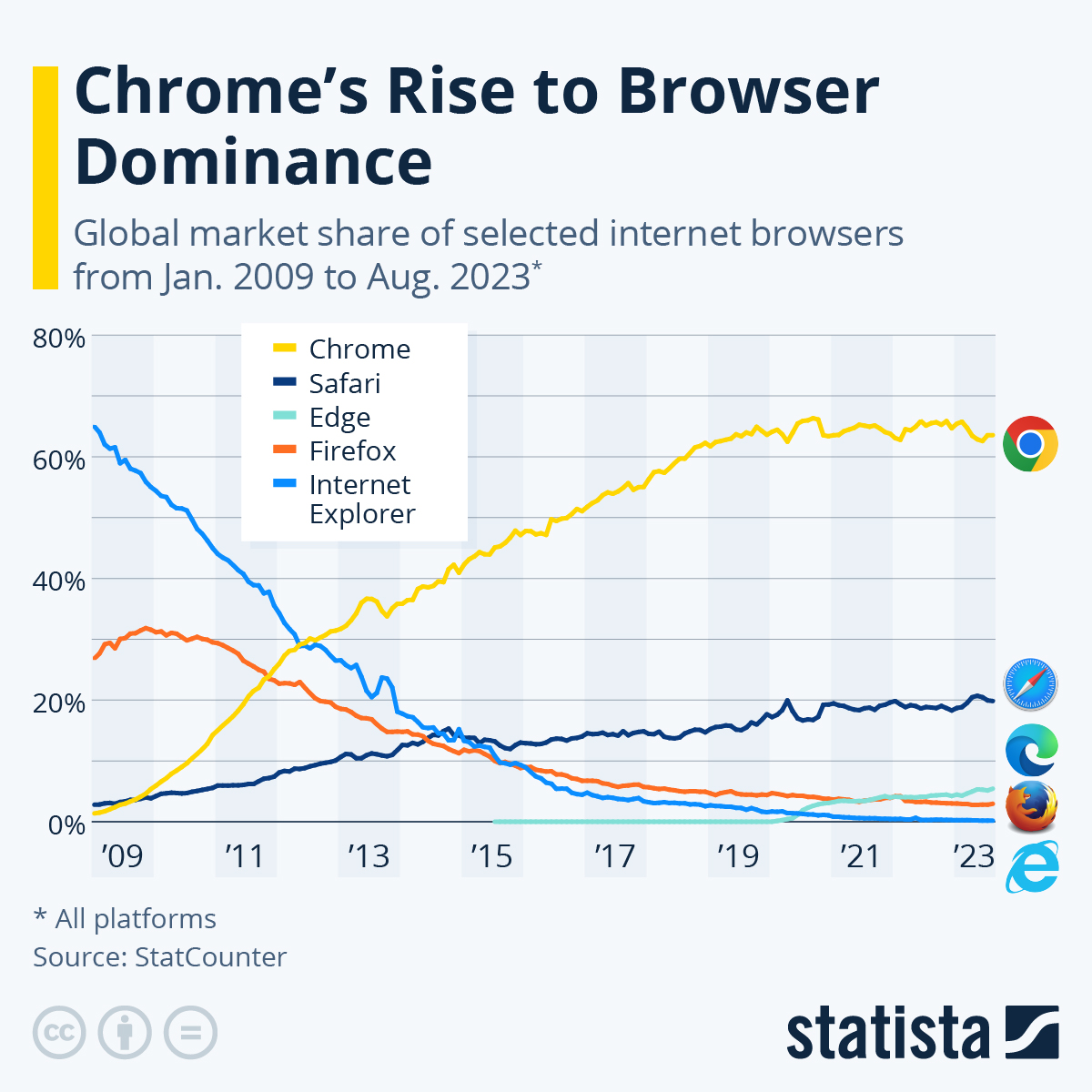When Google announced the release of its own web browser Chrome in 2008, many people asked themselves why Google was building a web browser. In retrospect, the better question would have been, why Google hadn't built a web browser earlier. After all, the company's entire business was people using a browser to access Google's services.
As a matter of fact, the plan to make a Google web browser had existed for years, Google's CEO Eric Schmidt just hadn't considered his company ready to enter the resource draining 'browser wars'. By 2008, Google was making billions of dollars a year and had finally matured enough to go head to head with Microsoft and it's market dominating Internet Explorer.
15 years ago, on September 2, 2008, the first official release of Chrome was published and the open-source browser began its steady climb through the ranks. By the third quarter of 2009, Chrome had caught up with Apple's Safari and set its sights on the next contender: Firefox. It took a bit longer to catch up with Firefox, but in the fourth quarter of 2011, Chrome's share of global web browsing surpassed that of Firefox. Less than a year later, Chrome became the world's number one browser, overtaking Microsoft's Internet Explorer which had utterly dominated the market just five years earlier.
Remarkably, Chrome's ascent came almost entirely at the expense of Microsoft's browser. Since the third quarter of 2008, Internet Explorer's market share dropped from 68 to 25 percent, while Chrome's soared from zero to 43 percent. Today, Internet Explorer's successor, Edge, commands just 5 percent of the global market, while Chrome is sitting at the top of the pile with a slice of the pie consistently and securely above the 60 percent mark - the nearest competitor being Safari with 20 percent in August 2023.





















